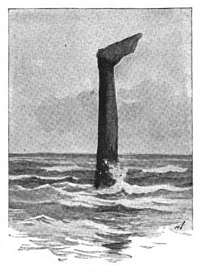A short time ago, I was pricking out some annuals on a flower-bed, on which some geraniums were already planted, when I was surprised to see flashes of light coming from a truss of geranium flowers. At first I thought it was imagination, but my wife and a friend who were present also saw them. Time was about 9 p.m., and the atmosphere clear. There were other geraniums a different colour on the same bed, but there was no effect on them. The particular geranium was a Tom Thumb. Is this at all common? I have never seen or read of it before. — S. Ingham
— Knowledge, July 27, 1883
Author: Greg Ross
The Mirror
From Albert Beiler, Recreations in the Theory of Numbers (1964):
1 + 4 + 5 + 5 + 6 + 9 = 3 + 2 + 3 + 7 + 8 + 7
Pair each digit on the left with one on the right (for example, 13, 42, 53, 57, 68, 97). The sum of these six numbers will always equal its mirror image:
13 + 42 + 53 + 57 + 68 + 97 = 79 + 86 + 75 + 35 + 24 + 31
This works for all 720 possible combinations.
Most remarkably, you can square every term in these equations and they still hold:
132 + 422 + 532 + 572 + 682 + 972 = 792 + 862 + 752 + 352 + 242 + 312
A Look Around

In September 1893, London doctor Farquhar Matheson was sailing with his wife on Scotland’s Loch Alsh, between the isle of Skye and the mainland. “Our sail was up and we were going gaily along when suddenly I saw something rise out of the loch in front of us–a long, straight, necklike thing as tall as my mast.”
The thing was 200 yards away; it was not until it began to submerge that Matheson saw “it was a large sea-monster–of the saurian type, I should think.”
He likened the head and neck to those of a giraffe. He watched the creature surface again three times, at intervals or two or three minutes, as he followed it for perhaps a mile. “It was not a sea-serpent, but a much larger and more substantial beast–something of the nature of a gigantic lizard, I should think.”
He denied emphatically that he had seen only an optical illusion, noting that he had watched the creature’s head gradually descend and ascend several times, and saw the light glisten on its smooth skin.
That evening he described the event to some gentlemen, including Sir James Farrar. They laughed at first, but “when I showed them that none of their theories would fit the case, they admitted that the sea-serpent, or sea-monster, could not be altogether a myth.”
Certainly, Officer
It’s said that police sergeants in Leith, Scotland, used this tongue twister as a sobriety test:
The Leith police dismisseth us,
I’m thankful, sir, to say;
The Leith police dismisseth us,
They thought we sought to stay.
The Leith police dismisseth us,
We both sighed sighs apiece;
And the sigh that we sighed as we said goodbye
Was the size of the Leith police.
If you can’t say it, you’re drunk.
In a Word

picqueter
n. one who arranges artificial flowers for a living
Arnold Bennett was surprised to find no fresh flowers in George Bernard Shaw’s apartment.
“But I thought you were so fond of flowers,” he said.
“I am,” Shaw replied, “and I’m very fond of children too, but I don’t chop their heads off and stand them in pots about the house.”
“Turks Flee From a Mirage at Shaiba”
On April 12th, a three days’ battle opened at Shaiba with an attack by a motley army of 22,000 Turks, Kurds, and Arabs commanded by German officers. During the thick of the fighting, and when success was well within their grasp, the Turkish forces ceased firing and fled in wild panic from field.
A Turkish prisoner subsequently explained the cause of the Turkish withdrawal. It appears that a pack train, approaching the British line from the rear, had been so distorted by a mirage that it appeared to the Turks as a great body of reinforcements. Believing themselves to be fighting against enormous odds, they had yielded up a victory almost won.
– William C. King, King’s Complete History of the World War, 1922
A Field Guide
Medieval sportsmen invented collective nouns for everything from owls to otters. Less well known are the terms they invented for people — this list is taken from Joseph Strutt, The Sports and Pastimes of the People of England, 1801:
- a state of princes
- a skulk of thieves
- an observance of hermits
- a lying of pardoners
- a subtlety of sergeants
- a multiplying of husbands
- an incredibility of cuckolds
- a safeguard of porters
- a stalk of foresters
- a blast of hunters
- a draught of butlers
- a temperance of cooks
- a melody of harpers
- a poverty of pipers
- a drunkenship of cobblers
- a disguising of tailors
- a wandering of tinkers
- a malapertness of peddlers
- a fighting of beggars
- a blush of boys
- a nonpatience of wives
- a superfluity of nuns
- a herd of harlots
Perpetual Notion

The balls on the right exert greater torque than those on the left, so the wheel ought to turn forever, right?
Sadly, the balls on the left are more numerous.
“If at first you don’t succeed,” wrote Quentin Crisp, “failure may be your style.”
“An Exacting Twelve-Year-Old”
In 1793, two years after publishing his translation of Homer, William Cowper received this letter from 12-year-old Thomas Hayley, pointing out its defects:
HONORED KING OF BARDS,–Since you deign to demand the observations of an humble and unexperienced servant of yours, on a work of one who is so much his superior (as he is ever ready to serve you with all his might) behold what you demand! but let me desire you not to censure me for my unskilful and perhaps (as they will undoubtedly appear to you) ridiculous observations; but be so kind as to receive them as a mark of respectful affection from your obedient servant,
THOMAS HAYLEY
Book I, Line 184. I cannot reconcile myself to these expressions, ‘Ah, cloth’d with impudence, etc.’; and 195, ‘Shameless wolf’; and 126, ‘Face of flint.’
Book I, Line 508. ‘Dishonor’d foul,’ is, in my opinion, an uncleanly expression.
Book I, Line 651. ‘Reel’d,’ I think makes it appear as if Olympus was drunk.
Book I, Line 749. ‘Kindler of the fires in Heaven,’ I think makes Jupiter appear too much like a lamplighter.
Book II, Lines 317-319. These lines are, in my opinion, below the elevated genius of Mr. Cowper.
Book XVIII, Lines 300-304. This appears to me to be rather Irish, since in line 300 you say, ‘No one sat,’ and in 304, ‘Polydamas rose.’
Cowper wrote back, “A fig for all critics but you!”
Math Notes

